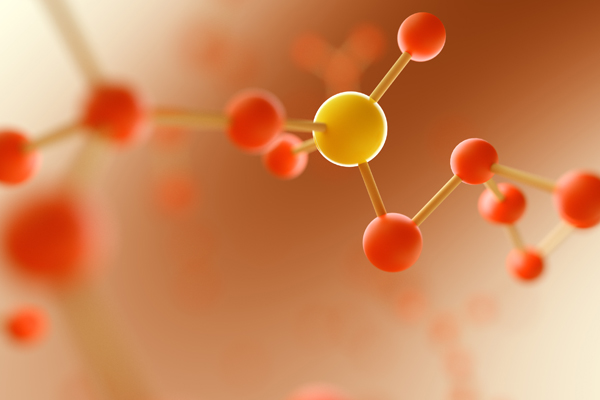
Be Careful With the Supplements You Use! What is Nickel Allergy?
Amino acid is a molecule that contains an amine group and a carboxyl group. Short polymer chains formed by the addition of amino acids are called peptides, while long chains are referred to as polypeptides or proteins. Proteins are part of the macro-nutrient group that the body needs.
In this article, we will discuss amino acids and the roles they play in our body’s functions.
What is an Amino Acid?
An amino acid is the building block of proteins, which are involved in many vital functions in our body. Amino acids are the essential components required for processes such as protein production, hormone and neurotransmitter synthesis, and other life-sustaining activities.
Amino acids are classified into three categories: essential, conditionally essential, and non-essential. Conditionally essential amino acids can be synthesized in the body, while essential amino acids must be obtained from external sources. The body can obtain these amino acids from protein-rich foods.
Essential Amino Acids
Amino acids are organic compounds composed of nitrogen, carbon, hydrogen, and oxygen, with a variable side chain group.
Our body requires 20 different amino acids, all of which are important for health. However, nine of these amino acids are essential and must be obtained from external sources. These essential amino acids are: threonine, histidine, phenylalanine, isoleucine, leucine, lysine, methionine, tryptophan, and valine.
Nine Essential Amino Acids and Their Important Roles in the Body
Phenylalanine: Precursor to neurotransmitters such as epinephrine, dopamine, tyrosine, and norepinephrine that play roles in the nervous system.
Valine: Involved in muscle growth and repair, helps in energy production.
Threonine: A key component of proteins like collagen and elastin, which are essential for skin and connective tissues; plays important roles in fat metabolism and immune system function.
Tryptophan: A precursor to serotonin, which regulates appetite, sleep, and mood.
Methionine: Plays a role in the absorption of vital minerals like zinc and selenium.
Leucine: Helps regulate blood sugar levels, promotes fast wound healing, and stimulates growth hormone production.
Isoleucine: Involved in muscle metabolism, immune function, hemoglobin production, and energy regulation.
Lysine: Plays a role in protein synthesis, hormone and enzyme production, calcium absorption, and collagen and elastin production.
Histidine: Involved in the production of histamine, a vital neurotransmitter for immune response, digestion, and sleep cycles.
Amino acids are most commonly known for their role in muscle development and repair. However, they serve many other purposes in the body. All nine essential amino acids contribute to processes like tissue building, energy production, immune function, and nutrient absorption. Therefore, a deficiency in essential amino acids can affect the functionality of the entire body, including the reproductive, nervous, immune, and digestive systems.
To maintain proper body function, the balance and levels of amino acids are crucial. Today, amino acid levels are measured through blood and urine tests. Changes in amino acid levels can play a role in the development of various disorders, which is why addressing deficiencies is important for treating illnesses.
When amino acid levels are too low or insufficient, disruptions occur in protein synthesis. However, amino acid levels can vary among individuals, which means personalized testing and treatments are necessary.
Benefits of Essential Amino Acid Supplements for Health
Essential amino acids are found in many foods. However, in some cases, concentrated doses of these amino acids need to be taken as dietary supplements. The health benefits of amino acids include:
Improving Mood and Sleep: Tryptophan is required for serotonin production, which regulates mood, sleep, and behavior. Low serotonin levels can lead to depression and sleep disturbances. Several studies have shown that tryptophan supplementation can reduce depression symptoms, improve mood, and enhance sleep quality.
Enhancing Exercise Performance: Essential amino acids are commonly used to reduce fatigue, improve athletic performance, and stimulate muscles after exercise. Studies have shown that amino acid supplementation can enhance performance and muscle recovery while reducing muscle fatigue.
Preventing Muscle Loss: Essential amino acids help prevent muscle breakdown, especially in conditions like sarcopenia, a common side effect of prolonged illness or bed rest, particularly in elderly individuals.
Supporting Weight Loss: Some amino acids are effective in promoting fat loss. Those on a diet are often advised to have their amino acid levels tested.
Conditionally Essential Amino Acids
Some non-essential amino acids are classified as conditionally essential. These amino acids are only considered essential in specific situations such as illness or stress.
For example, arginine, which is a conditionally essential amino acid, cannot be produced by the body when fighting a major illness like cancer. In such cases, external arginine supplementation is required. These amino acids are referred to as conditionally essential and must be obtained externally in special circumstances.
Conditionally essential amino acids include:
Arginine
Cysteine
Glutamine
Tyrosine
Glycine
Ornithine
Proline
Serine
Amino Acid Sources
Essential amino acids cannot be produced by the body, so they must be obtained through diet. The best sources of essential amino acids are animal proteins such as meat and eggs.
Animal-based protein sources rich in amino acids: meat, seafood, eggs, and dairy products. Plant-based protein sources rich in amino acids: soy, quinoa, and spelt wheat contain all nine essential amino acids. Incomplete sources: Legumes and nuts, while plant-based amino acid sources, do not contain all nine essential amino acids. Therefore, they are called incomplete sources.
How to Avoid Amino Acid Deficiency
Animal-based foods that are complete protein sources, such as cheese, yogurt, eggs, chicken, red meat, and fish, as well as legumes, nuts, and grains, should be consumed in moderation.